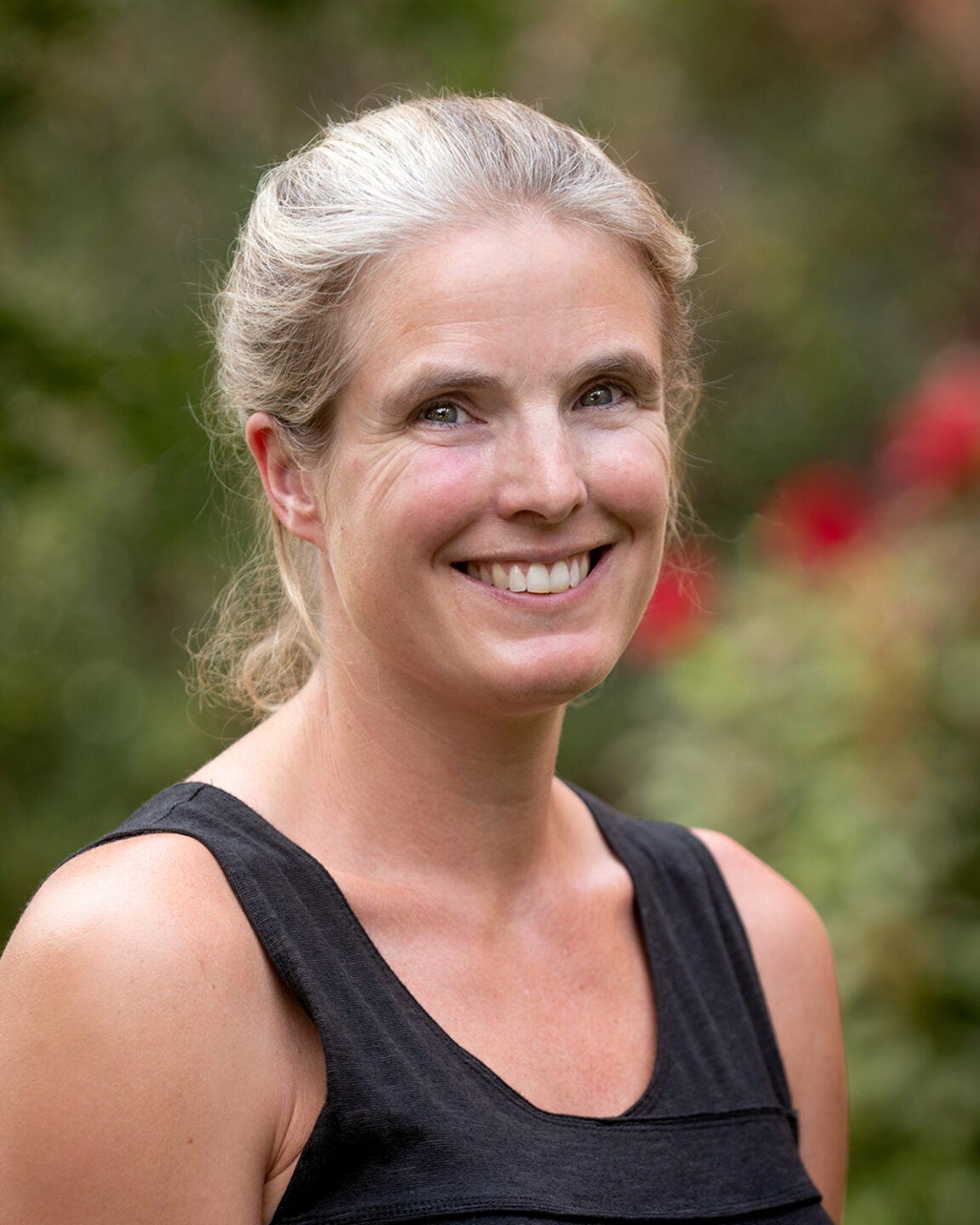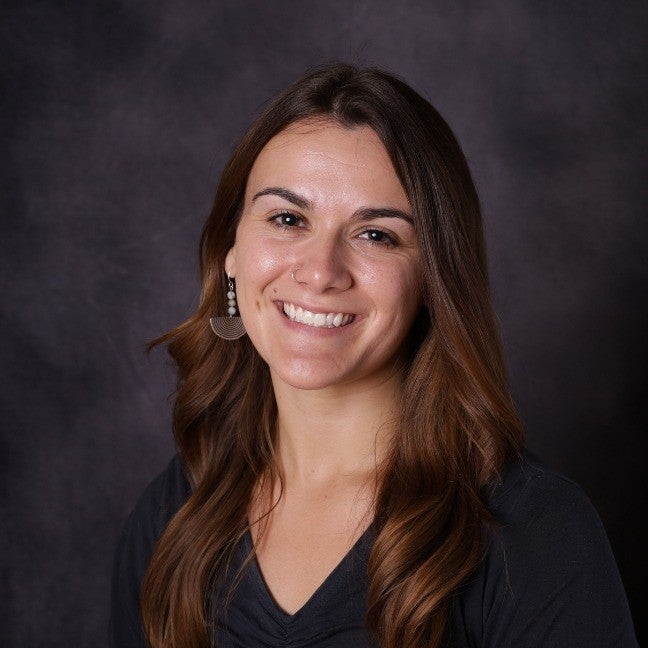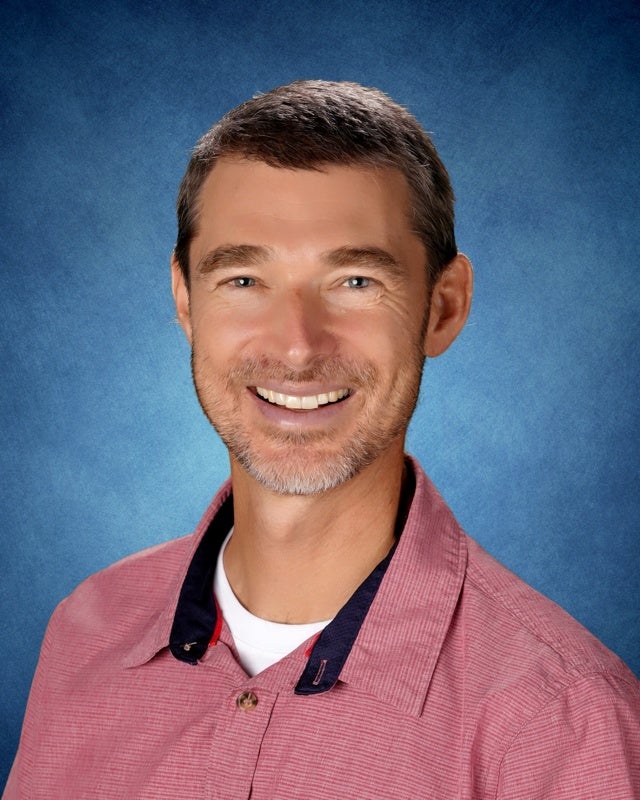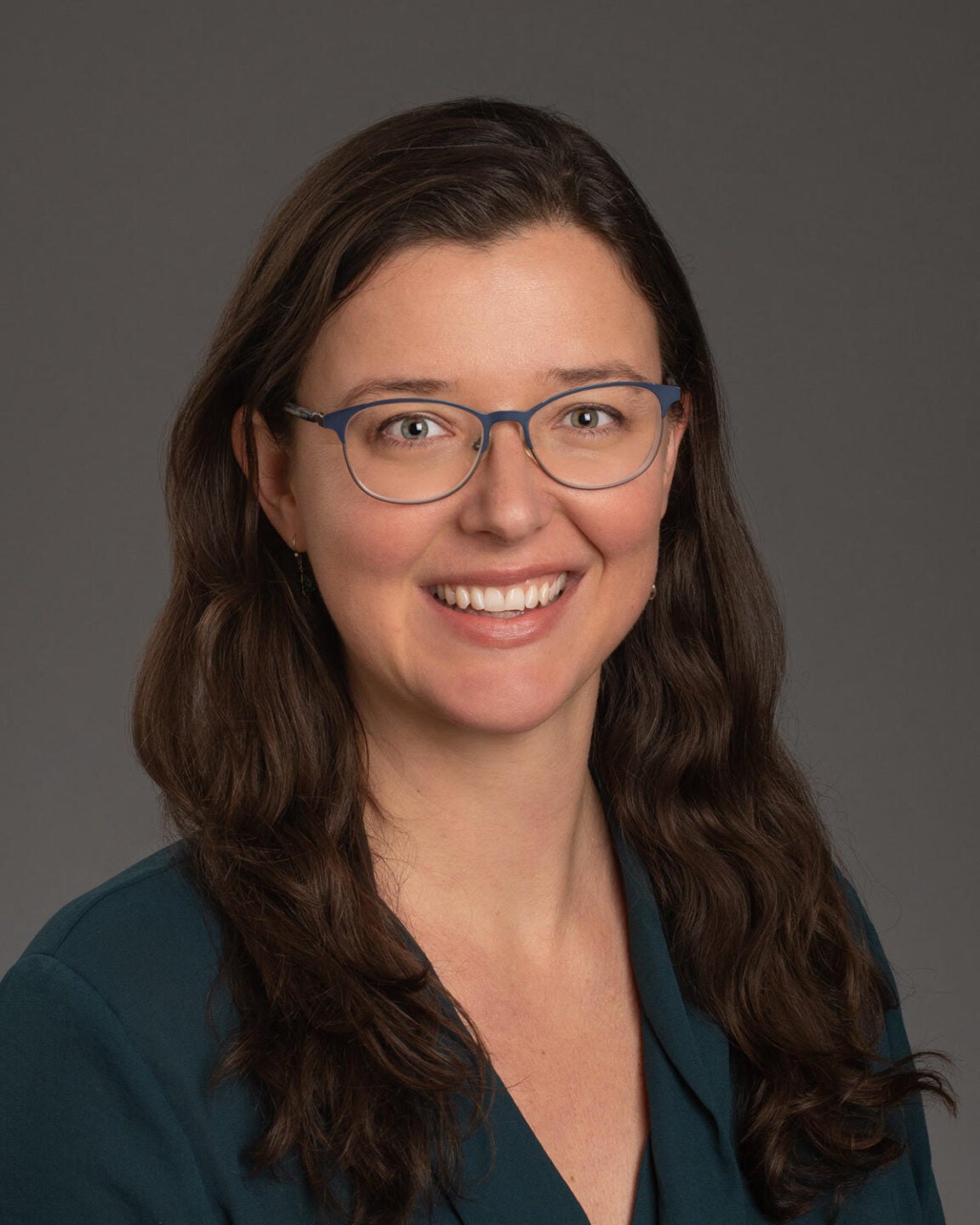Meet the first cohort members of INSPIRE
-

Dr. Marie-Anne de Graaff
Program Director; Professor, Biology; Associate Dean, College of Arts and Sciences
Marie-Anne de Graaff is a Professor in the Department of Biological Sciences and Associate Dean of Research, Creative Activity and Graduate Education in the College of Arts and Sciences. Her research advances a basic understanding of plant-soil relationships to improve soil management for sustainable agriculture, inform ecosystem restoration practices and predict and mitigate atmospheric CO2 concentrations through soil carbon sequestration.
Marie-Anne de Graaff is a Professor in the Department of Biological Sciences and Associate Dean of Research, Creative Activity and Graduate Education in the College of Arts and Sciences. Her research advances a basic understanding of plant-soil relationships to improve soil management for sustainable agriculture, inform ecosystem restoration practices and predict and mitigate atmospheric CO2 concentrations through soil carbon sequestration.
-

Dr. Leslie Atkins
Cohort Meeting Lead; Professor, Curriculum, Instruction & Foundational Studies
Leslie Atkins is a professor of science education at Boise State University. She completed a
Ph.D. in physics, a postdoc in cognitive science, and has taught widely outside of academia: in
science museums, high schools and with the Dalai Lama’s Science Education Initiative. Her
research focuses on the epistemic practices of science, particularly the idiosyncratic, aesthetic
and cultural nature of those practices.Leslie Atkins is a professor of science education at Boise State University. She completed a
Ph.D. in physics, a postdoc in cognitive science, and has taught widely outside of academia: in
science museums, high schools and with the Dalai Lama’s Science Education Initiative. Her
research focuses on the epistemic practices of science, particularly the idiosyncratic, aesthetic
and cultural nature of those practices. -

Naomi Shapiro
Naomi Shapiro is a 2022 graduate of the Boise State Master in Teaching program with a Natural Science endorsement. She currently teaches 8th grade Physical Science and Astronomy at Lake Hazel Middle School.
Lake Hazel Middle SchoolNaomi Shapiro is a 2022 graduate of the Boise State Master in Teaching program with a Natural Science endorsement. She currently teaches 8th grade Physical Science and Astronomy at Lake Hazel Middle School.
-

Dr. Jenée Cyran
Mentor; Assistant Professor, Chemistry and Biochemistry
Jenée Cyran received her B.S. degree in chemistry from Allegheny College in Pennsylvania. She
earned her PhD in chemistry in 2015 from Colorado State University in the group of Amber
Krummel. She was an Alexander von Humboldt postdoctoral fellow in the Molecular
Spectroscopy Department at the Max Planck Institute for Polymer Research (MPIP) in Mainz,
Germany. Currently, she is an assistant professor at Boise State University where her research is
focused using nonlinear spectroscopy to probe interfacial structure and dynamics of aqueous
interfaces.Jenée Cyran received her B.S. degree in chemistry from Allegheny College in Pennsylvania. She
earned her PhD in chemistry in 2015 from Colorado State University in the group of Amber
Krummel. She was an Alexander von Humboldt postdoctoral fellow in the Molecular
Spectroscopy Department at the Max Planck Institute for Polymer Research (MPIP) in Mainz,
Germany. Currently, she is an assistant professor at Boise State University where her research is
focused using nonlinear spectroscopy to probe interfacial structure and dynamics of aqueous
interfaces. -

Chad Cooper
Chad Cooper has taught science for 23 years. For the last 20 years, most of his career has been devoted to teaching secondary science at Mountain View High School, the largest high school in Idaho. Throughout his career, Chad has taught oceanography, physics, chemistry, earth science, microbiology, biology and environmental science. He currently teaches a 100-level introductory college biology class and an AP biology class. As a science teacher, Chad embraces the pedagogy and framework of constructivism by doing science in the classroom to teach and learn about science.
Mountain View High SchoolChad Cooper has taught science for 23 years. For the last 20 years, most of his career has been devoted to teaching secondary science at Mountain View High School, the largest high school in Idaho. Throughout his career, Chad has taught oceanography, physics, chemistry, earth science, microbiology, biology and environmental science. He currently teaches a 100-level introductory college biology class and an AP biology class. As a science teacher, Chad embraces the pedagogy and framework of constructivism by doing science in the classroom to teach and learn about science.
-

Dr. Leonora Bittleston
Mentor; Assistant Professor, Biology
Leonora Bittleston is fascinated by the complex interactions that form between very different kinds of organisms. She wants to learn more about life on our planet, taking into account the interconnectedness of ecosystem processes, communities and species.
Before joining Boise State, Leonora was a James S. McDonnell Postdoctoral Fellow in Complex Systems with Dr. Otto Cordero at MIT. She earned her PhD from the Department of Organismic and Evolutionary Biology at Harvard University with Dr. Naomi Pierce and Dr. Anne Pringle. She grew up in California and attended U.C. Berkeley for undergrad.
Leonora Bittleston is fascinated by the complex interactions that form between very different kinds of organisms. She wants to learn more about life on our planet, taking into account the interconnectedness of ecosystem processes, communities and species.
Before joining Boise State, Leonora was a James S. McDonnell Postdoctoral Fellow in Complex Systems with Dr. Otto Cordero at MIT. She earned her PhD from the Department of Organismic and Evolutionary Biology at Harvard University with Dr. Naomi Pierce and Dr. Anne Pringle. She grew up in California and attended U.C. Berkeley for undergrad.
-

Dawn Bolen
Dawn Bolen is an educator teaching biology in a secondary school to above-grade-level learners in 9th grade and the life science classes required for all 7th graders. Dawn’s distinguished approach to teaching helps support students improving their educational experience through real scientific research and data analysis. Scientific modeling and graphing displays visual aids for all students to learn from, including the non-English speakers in the school population. In a junior high with an immigrant, refugee and low-income population interspersed with academically advanced, these tools in science break the language barrier and will most importantly expose all students to activities that resemble professional scientific research in the real world arena.
Fairmont Jr. HighDawn Bolen is an educator teaching biology in a secondary school to above-grade-level learners in 9th grade and the life science classes required for all 7th graders. Dawn’s distinguished approach to teaching helps support students improving their educational experience through real scientific research and data analysis. Scientific modeling and graphing displays visual aids for all students to learn from, including the non-English speakers in the school population. In a junior high with an immigrant, refugee and low-income population interspersed with academically advanced, these tools in science break the language barrier and will most importantly expose all students to activities that resemble professional scientific research in the real world arena.
